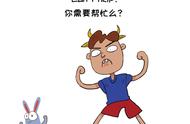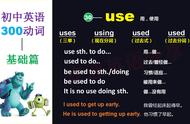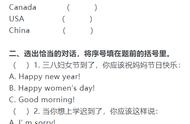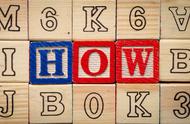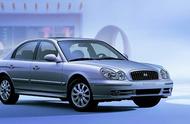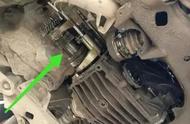9-24
1. _____wonderful, this kind of food enjoyed a good sale.
A. Tasted B. Being tasted C. Tasting D. Having tasted
2. To answer correctly is more important than______.
A. that you finish quickly B. finishing quickly
C. to finish quickly D. finish quickly
3. _____now seems impossible.
A. Saving money B. To save money
C. Being saved money D. To be saved money
4. —What do you think made Mary so upset?
—_____her new bicycle.
A. As she lost B. Lost C. Losing D. Because of losing
5. Her wish is_____an engineer.
A. becoming B. become C. to become D. being come
6. When he got off the train, it happened______.
A. to rain B. to be raining C. raining D. to raining
7. I didn’t_____it until you had explained how.
A. manage to do B. managed to do C. manage to have done D. manage doing
8. I would appreciate_____back this afternoon.
A. you to call B. you call C. your calling D. you’re calling
9. Young people may risk_____deaf if they are exposed to very loud music every day.
A. to go B. to have gone C. going D. having gone
10. Ali said that she wouldn’t mind_____alone at home.
A. left B. being left C. to be left D. leaving
11. If you keep_____English, you can learn English well.
A. practicing speak B. practicing speaking
C. practicing to speak D. to practice spoken
12. —Did you close the door?
—Yes, I remember_____it.
A. to close B. to closing C. closing D. closed
13. I remembered______the door before I left the office, but forgot to turn off the lights.
A. locking B. to lock C. having locked D. to have locked
14. I felt tired with walking, so I stopped_____a break for an hour.
A. having B. to have C. taking D. to taking
15. The grass has grown so tall that it needs_____.
A. to cut B. to be cut it C. cutting D. being cut
16. I’m busy_____for the entrance examination, so I can’t help_____housework.
A. preparing; doing B. preparing; to do
C. to prepare; doing D. to prepare; to do
17. Jim has retired, but he still remembers the happy time____with his students.
A. to spend B. spend C. spending D. spent
18. I’m calling to enquire about the position_____in yesterday’s China Daily.
A. advertised B. to be advertised C. advertising D. having advertised
19. The witnesses_____by the police just now gave very different descriptions of the fight.
A. questioned B. being questioned C. to be questioned D. having questioned
20. The airport_____next year will help promote tourism in this area.
A. being completed B. to be completed C. completed D. having been completed
解析:
1.考点:非谓语。
句意:这款食物畅销、味道好。
详解:这条鱼尝起来不错。 The fish tastes good. 这是主系表结构,可以得出,主语是物,谓语tastes采用的是主动形式,而不是被动。因此,变成非谓语的题目,也应该用主动形式,而不是被动。非谓语,表主动,用ing形式,故本题选C。A是过去分词,表被动。B是进行时,表被动。D是完成时,表主动。
2.考点:非谓语。
句意:答得对要比答得快要重要。
详解:than前用的是to do(参考to answer)形式,than后结构保持一致。故本题选C。如:Seeing is believing.=To see is to believe. 眼见为实。
3.考点:非谓语。
句意:现在,存钱似乎是不可能的。
详解:动词作主语时,如果侧重于表示经常性,在动词后面加ing构成动名词作主语;如果侧重于表示现在/将来特定的某一次,则用动词不定式(to do)来作主语。本题解题关键词为now,强调的是特定的某一次,故本题只能选B。
4.考点:非谓语。
句意:—你认为什么使玛丽那么不安?—丢了她的新自行车。
详解:结合句意,回答完整的话应该是:“丢了她的新自行车”使玛丽不安。英文翻译就是:Losing her new bicycle made Mary so upset. 动名词作主语,本题选C。
5.考点:非谓语。
句意:她的愿望是(将来)要成为一名工程师。
详解:表示将来某一次时常用动词不定式(to do)作表语;表示经常性时常用动名词作表语。故本题不选A,而选C。另外,愿望是尚未实现,表将来。非谓语,表将来,用to do形式,也是能够推断答案选C。
6.考点:非谓语。
句意:当他下火车的时候,外面碰巧正在下雨。
详解:happen to be doing sth. 意为“碰巧正在做某事”;而happen to do sth. 意为“碰巧开始做某事”。结合句意,应选B更为恰当。
7.考点:非谓语。
句意:直到你解释了操作原理后,我才会做。
详解:助动词后跟动词原形,因此B肯定是错的,不能选。manage to do sth.是固定结构,意为“设法做成某事”。其余C和D都是不正确的结构,均排除。故本题选A。
8.考点:非谓语。
句意:如果您能下午回电,我将不胜感激。
详解:appreciate (sb’s) doing sth.是固定结构,意为“感谢(某人)做了某事”。故本题只能选C。
9.考点:非谓语。
句意:如果年轻人每天都暴露在非常吵闹的音乐声中,他们可能有耳朵失聪的危险。
详解:risk doing sth.是固定结构,意为“冒险做某事”。故本题只能选C。
10.考点:非谓语。
句意:阿里说她并不会介意被单独留在家里。
详解:mind doing sth. 介意做某事,主动形式。mind being done. 介意被做某事,被动形式。结合句意,本题选B。A和C是错误的结构,不选。
11.考点:非谓语。
句意:如果你坚持练习说英语,你就能学好英语。
详解:keep doing sth.是固定结构,坚持做某事;practice doing sth.也是固定结构,练习做某事。因此practicing是因为keep而加ing;speaking是因为practice而加ing。故选B。
12.考点:非谓语。
句意:—你关门了吗?—是的,我记得关了。
详解:remember to do sth. 记得要去做某事(未做)。remember doing sth. 记得做了某事。(已做了)。结合句意,选C。
13.考点:非谓语。
句意:我记得离开办公室要锁门,但忘了要关灯。
详解:remember to do sth. 表示“记得要做某事”,与后半句中的“forgot to...”相对应。故本题选B。
14.考点:非谓语。
句意:我散步累了,所以停下来去休息一个小时。
详解:stop to do sth. 停下来去做另一件事。stop doing sth. 停下正在做的事。结合句意,先散完步再停下来“去”休息,故选B。
15.考点:非谓语。
句意:这草生长得如此高以至于它需要(被)修剪。
详解:物 need/want/require/demand doing=物 need/want/require/demand to be done。也就是说,这种题目,物做主语,要么就要选to be done,要么就要选doing表示被动。故选C。如:这盆花需要(被)浇水。The flower needs to be watered.=The flower needs watering.
16.考点:非谓语。
句意:我忙碌于入学考试的复习,因此帮不了做家务。
详解:be busy doing sth. 忙于做某事。根据第一空,排除C和D。can’t/couldn’t help doing sth. 忍不住做某事。can’t/couldn’t help to do sth. 不能帮助去做某事,to可以省略。结合句意,选B。因为忙,而不能帮助做某事。
17.考点:非谓语。
句意:吉姆已经退休了,但他仍然记得与学生们相处的那些快乐时光。
详解:横线前已经有了谓语,是remembers,因此横线所填的需要用非谓语形式。横线前是不可数名词time,时间是“被”花。非谓语,表被动,用过去分词。本题选D。
18.考点:非谓语。
句意:我打电话询问关于在昨天《中国日报》上登广告的职位。
详解:横线前已经有了谓语,是am calling,因此横线所填的需要用非谓语形式。横线前是名词position,职位是“被”刊登。非谓语,表被动,用过去分词。本题选A。
19.考点:非谓语。
句意:被警察询问的目击者给出了打斗的不同的描述。
详解:句子的主语是The witnesses,句子的谓语是gave,宾语是descriptions of the fight。因此横线处需要填的是非谓语形式,关键词是just now,意为“刚刚”,表示动作已经完成。by the police意为“被警察”。因此,横线处应填入非谓语表被动或完成的形式,即用过去分词,故本题只能选A。B是进行时的被动形式;C是将来时的被动形式;D是完成时的主动形式。
20.考点:非谓语。
句意:明年即将完工的机场将促进这个地区旅游业的发展。
详解:题目主语是The airport,谓语是will help,因此横线处只能填非谓语形式。关键词是next year,明年,属于将来的时间。非谓语,表将来,用to do形式。另外,主语是the airport,机场,与complete之间的逻辑关系应为被动。机场“被”建设完成。因此才用to do的被动形式,即to be done。故本题答案选B。
9-25
1. He loves parties. He is always the first___and the last___.
A. coming; leaving B. to come; to leave C. comes; leaves D. come; leave
2. The ability___an idea is as important as the idea itself.
A. expressing B. exPressed C. to express D. to be expressed
3. The club,___25 years ago, is holding a party for past and present members.
A. founded B. founding C. being founded D. to be founded
4. ___to hospital in time, the wounded soldiers were saved at last.
A. Taken B. Taking C. Having taken D. Being taken
5. He sat on the platform,___to answer the question.
A. prepare B. preparing C. prepared D. to prepare
6. ___the city center, we saw a stone statue of about 10 meters in height.
A. Approaching B. Approached C. To approach D. To be approached
7. ___ into English, the sentence was found to have an entirely different word order.
A. Translating B. Translated C. To translate D. Having translated
8. The classroom needs___.
A. to clean B. cleaning C. cleaned D. clean
9. ___ over a week go, the books are expected to arrive any time now.
A. Ordering B. To order C. Having ordered D. Ordered
10. Pressed from his parents, and___that he has wasted too much time, the boy is determined to stop playing video games.
A. realizing B. realized C. to realize D. being realized
11. The old man sat in front of the television every evening, happy___anything that happened to be on.
A. to watch B. watching C. watched D. to have watched
12. Time, ___correctly, is money in the bank.
A. to use B. used C. using D. use
13. ___an important decision more on emotion than on reason, you will regret it sooner or later.
A. Based B. Basing C. Base D. To base
14. Group activities will be organized after class___children develop team spirit.
A. helping B. having helped C. helped D. to help
15. ___this, we can find a proper time to have a heart-to-heart talk with them, trying to remove the misunderstanding.
A. Faced B. Facing C. Having faced D. To face
16. ___with the size of the whole earth, the highest mountain doesn’t seem high at all.
A. When compared B. To compare C. With comparing D. It compared
17. ___by the advances in technology, many farmers have set up wind farms on their land.
A. Being encouraged B. Encouraging C. Encouraged D. Having encouraged
18. You can never imagine what difficulty I had___your house.
A. found B. finding C. to find D. for finding
19. When ___for his views about his teaching job, Philip said he found it very interesting and rewarding.
A. asking B. asked C. having asked D. to be asked
20. ___ for two days, Steve managed to finish his report on schedule.
A. To work B. Worked C. To be working D. Having worked
解析:
1.考点:非谓语。
句意:他喜欢参加聚会。他总是第一个来,最后一个走。
详解:表语是序数词、形容词最高级或the next/the last时,常用不定式作定语。故本题选B。
2. 考点:非谓语。
句意:想法本身是重要的,提出想法的能力也同样重要。
详解:被修饰的名词或代词是动词不定式的逻辑宾语时,常用不定式作定语。如:I have many assignments to do.(do assignments为“动宾关系”)我有很多作业要做。本题是“express the ability为动宾关系”,因此用express的不定式(to express)做定语,修饰the ability。故本题选C。
3. 考点:非谓语。
句意:25年前建成的俱乐部,正为过去和现在的成员举行聚会。
详解:句子已经有了谓语,是is holding,现在进行时。那么横线就只能填found(建立)的非谓语形式。关键词是...ago,已经过去了,且主语是the club(俱乐部,是物),俱乐部是“被”建立。非谓语,表被动或者完成,用过去分词。故本题只能选A。B是非谓语表主动的形式。C是非谓语表进行时的被动结构。D是非谓语表将来的被动形式。
4. 考点:非谓语。
句意:(因为)受伤的战士被及时送到医院,所以他们最后获救了。
详解:句子的谓语已经有了,是were saved,那么横线处就要用非谓语形式。结合句意,受伤的战士是“被”送去医院。而且时态是过去(参考were saved和时间状语at last)。得知横线处应填入非谓语表被动或完成的形式,即过去分词。本题选A。
5. 考点:非谓语。
句意:他站在讲台上,准备好了回答问题。
详解:be prepared to do sth. 准备好了做某事,表状态(且强调准备好了)。prepare to do sth.准备做某事(一般没有准备好而是在准备)。参照谓语时态,sat得知,他已经做好准备。因此采用be prepared to do sth. 考查非谓语形式,把be去掉,即选C。prepared在此只表状态,不表被动。如:I am interested in English. 我对英语很感兴趣。对英语很感兴趣,我每天都阅读大量的英语书。Interested in English, I read books about English every day. 而不是用interesting。故本题只能选C。
6. 考点:非谓语。
句意:接近市中心时,我们看见一个高度10米的一个石像。
详解:句子已经有谓语了,是saw,主语是we,是人。那么就考虑主语we跟ABCD选项的原形approach之间的逻辑关系。是我们主动接近,还是被接近?当然是我们接近,主动关系。非谓语,表主动,用ing形式,故本题只能选A。
7. 考点:非谓语。
句意:被翻译成英语后,这个句子的单词顺序完全不同了。
详解:句子已经有谓语了,是was found,主语是the sentence,是物。那么就考虑主语the sentence跟ABCD选项的原形translate之间的逻辑关系。是句子主动翻译,还是被翻译?当然是句子“被”翻译,被动关系。非谓语,表被动或完成,用ed形式,故本题只能选B。
8. 考点:固定用法。
句意:这间教室需要打扫。
详解:物 require/want/need/demand to be done=物 require/want/need/demand doing 意为“某物需要被做某事”如:这盆花需要浇水。The flower needs to be watered.=The flower needs watering. 即遇到物 require/want/need/demand的题目,要么选to be done,要么选doing表被动。故本题选B。
9. 考点:非谓语。
句意:(因为)那些书是一周多之前订的,现在随时有可能送到。
详解:句子已经有谓语了,是are expected,因此横线应填order的非谓语形式。关键词a week ago,一周前,表示动作已经完成;另外,主语是books,书本,书本是“被”订购。非谓语,表被动或完成,用过去分词。故本题只能选D。
10. 考点:非谓语。
句意:被父母迫使同时自己也意识到他已经浪费了太多时间,这个男孩决定停止玩电脑游戏。
详解:句子已经有谓语了,是is determined,因此横线处应填入realize的非谓语形式。主语是the boy,是人。考虑realize与主语the boy之间的逻辑关系。是男孩主动意识到,还是男孩被意识。当然是男孩(主动)意识到。非谓语,表主动,用ing形式。故选A。
11. 考点:非谓语。
句意:这位老人每天晚上总是坐在电视机的前面,非常高兴的看电视上所播放的节目。
详解:动词不定式作原因状语时,常与表示喜怒哀乐、运气好坏的形容词(如happy, ashamed, sorry, glad, delighted, angry, discouraged, shocked等)或动词连用。如:I’m pleased to see you again. 与你再次相遇,我感到很高兴。be happy to do sth. 做某事很高兴。故选A。
12. 考点:非谓语。
句意:时间,如果使用得当的话,就是存在银行里的钱。
详解:句子的谓语已经有了,是系动词is。因此横线应填入use的非谓语形式。主语是time,时间,是物。时间是“被”使用,非谓语表被动,用过去分词,故选B。
13. 考点:非谓语。
句意:根据感情而不是理智做决定的话,你迟早会为此后悔的。
详解:base sth. on sth.意为“把某事建立在...的基础上”。句子的谓语是will regret,因此横线处应填入base的非谓语形式。主语是you,是人,跟base之间的逻辑关系为主动。非谓语,表主动,用ing形式,故选B。
14. 考点:非谓语。
句意:将组织各种团体活动以帮助儿童培养团队精神。
详解:句子的谓语有了,是will be organized,因此横线处应填入help的非谓语形式。结合句意,横线处应填入表目的的非谓语形式。非谓语,表目的,用to do形式。故选D。
15. 考点:非谓语。
句意:面对此事,我们可以找个合适的时间,进行了一次推心置腹的谈话,尽力去消除对彼此的误解。
详解:句子有谓语,是can find,因此横线处应填入face的非谓语形式。be faced with 名词=face 名词。即考非谓语的题目,横线后若没有介词,就选ing形式;若横线后有介词,就选faced。故本题选B。本题的Facing this=Faced with this。
16. 考点:非谓语。
句意:当最高的山与整个地球进行比较时,最高的山似乎一点也不高了。
详解:句子已经有谓语,是doesn’t seem,因此横线处应填入compare的非谓语形式。主语是the mountain,是物。山是“被”对比,非谓语表被动,用过去分词,故只能选A。不能选D,选D的话,就有两个句子,中间没有连词,是错误的,而且用it compared的话,compared只是过去式,不是过去分词。When compared=When the highest mountain is compared。
17. 考点:非谓语。
句意:受科技进步的鼓舞,许多农民已经在他们的土地上建造了风力发电厂。
详解:句子已经有谓语了,是have set up,因此横线处应填入encourage的非谓语形式。主语是farmers,结合句意,农民是“被”鼓励。因此横线处应填入非谓语表被动的形式,即过去分词。故本题只能选C。
18. 考点:非谓语。
句意:你几乎不能想象在找到你的房子时我有多大的困难。
详解:把横线前的difficulty代回去had后,即“have difficulty/trouble/a problem/a good time/a bad time in doing sth.”其中in可以省略”。have difficulty in doing sth. 做某事有困难。故本题只能选B。
19. 考点:非谓语。
句意:当被问及他对教学工作的看法,飞利浦说他发现教学很有趣和是有回报的。
详解:句子已经有谓语了,是said,因此在when后没有sb.的情况下,横线处只能填入ask的非谓语形式。结合句意,是Philip“被”问。时态是过去时(参考said),即动作已完成。非谓语表被动或完成,用过去分词,即选B。不选D,D是将来时的被动,时态不对。
20. 考点:非谓语。
句意:工作了两天,Steve成功地按时完成了他的报告。
详解:句子已经有谓语,是managed,因此横线处应填入work的非谓语形式。首先排除A,to do表将来或目的。横线处不表目的,也不是将来时,而是过去时(参考managed)。排除B,B表被动,Steve与工作之间是主动关系。C表将来进行时的主动,时态错了,排除。本题另外解题的关键词是for two days,for 一段时间,用完成时,原形是have done。表主动,那么就把have变成ing形式,再加done,即having done,选D。表示work这个动作先完成,再出现managed to finish的动作。
9-26
1. All the preparations for the task______, and we’re ready to start.
A. completed B. complete C. had been completed D. have been completed
2. I was told that there were about 50 foreign students______Chinese in the school, most_____were from Germany.
A. study; of whom B. study; of them C. studying; of them D. studying; of whom
3. _____at the photos, illustrations, title and headings and you can guess what the reading is about.
A. To look B. Looking C. Having looked D. Look
4. Some experts think that language learning is much_____for children as their tongues are more flexible.
A. easy B. easier C. easily D. more easily
5. After the long journey, the three of them went back home, ______.
A. hungry and tiredly B. hungry and tired
C. hungrily and tiredly C. hungrily and tired
6. ______and short of breath, Andy and Ruby were the first to reach the top of Mount Tai.
A. To be tried B. Tired C. Tiring D. Being tired
7. Mr. Smith, ______of the______speech, started to read a novel.
A. tired; boring B. tiring; bored C. tired; bored D. tiring; boring
8. What seemed most______to me was that no one thought of his own safety.
A. surprised B. surprise C. surprising D. to surprise
9. ______box cannot be lifted by a boy of five.
A. So a heavy B. So heavy a C. A such heavy D. Such heavy
10. Many students signed up for the_____race in the sports meeting to be held next week.
A. 800-metre-long B. 800-metres-long C. 800 metre length D. 800 metres length
11. —Haven’ t you been to Hong Kong?
—______. I went there last year.
A. Yes, I have B. No, I have C. Yes, I haven’t D. No, I haven’t
12. —Have you been to Hong Kong?
—_____. I went there last year.
A. Yes, I have B. No, I have C. Yes, I haven’t D. No, I haven’t
13. If I had______, I’d visit Europe, stopping at the small interesting places.
A. a long enough holiday B. an enough long holiday
C. a holiday enough long D. a long holiday enough
14. Maggie has been fortune to find a job she loves and,______, she gets well paid for it.
A. sooner or later B. what’s more
C. as a result D. more or less
15. A society cannot be successful if it throws tradition away, but it cannot be successful______if we do something to stop progress.
A. either B. neither C. too D. also
16. If you want to change for a double room you’ll have to pay______$15.
A. another B. other C. more D. each
17. ______1000 people were killed in the battle.
A. As much as B. As many as C. As long as D. As far as
18. I had been to Beijing long______you visited it.
A. before B. till C. after D. when
19. Allen had to call a taxi because the box was______to carry all the way home.
A. much too heavy B. too much heavy C. heavy too much D. too heavy much
20. It’s very______to let the old have seats on the bus.
A. thoughtful B. useful C. careful D. funny
21. He began to take political science______only when he left school.
A. strictly B. truly C. carefully D. seriously
解析:
1. 考点:谓语时态和语态。
句意:一切准备工作已经就续,我们准备好开始工作了。
详解:逗号后有连词,连词连接两个句子,句子就得至少有主语、谓语。横线前缺谓语,主语是All the preparations,意为“所有的准备工作”,是物。“准备工作”是“被”完成。排除A和B,A和B不是被动结构,被动结构是be done形式。排除C,C是过去完成时的被动结构,句子没有过去时,过去完成时不能单独使用。故本题选D,现在完成时的被动。
2. 考点:非谓语 定语从句。
句意:我被告知有大约50名外国学生在学校学习汉语,他们之中大多数来自德国。
详解:第一空,考虑study与students的逻辑关系,学生是“主动”学习,还是“被”学习。非谓语表主动,用ing形式,故第一空填studying,排除A和B。第二空,most前没有连词,连词不能选them的选项,只能选定语从句的关系词,故只能选D。
3. 考点:祈使句。
句意:看那些照片、插图和标题,你就可以猜出那本书是关于什么了。
详解:“祈使句 and 陈述句”的句型。祈使句:句首没主语,以动词原形开头,表示命令、要求、建议等语气的句子。如:Look at the blackboard. 看黑板。本题选D。
4. 考点:形容词的级。
句意:一些专家认为:孩子们更容易掌握一门语言,因为他们的舌头更柔软。
详解:much后加形容词/副词的比较级,那么排除A和C。B是形容词的比较级,D是副词的比较级,看横线前的谓语,谓语是be动词(参考is),那么只能选形容词。故本题选B。修饰动词才用副词,例:我比你跑得更慢。 I run more slowly than you do.(do=run)。
5. 考点:形容词作伴随状语。
句意:在长途旅行后,那三个人回到家,又累又饿。
详解:hungry和tired两个形容词作状语,表示主语所处的状态。表状态,用形容词。选B。
6. 考点:形容词作伴随状语。
句意:尽管累并且喘不过来气,但是Andy and Ruby是最早到达泰山山顶的人。
详解:主语是Andy and Ruby,选项是描述主语所处的状态,用形容词做状语,形容人,用ed的形容词。故选B。
7. 考点:形容词。
句意:史密斯先生对这个无聊的演讲感到厌烦,所以他开始读小说。
详解:形容词,形容人(人做主语),用ed,如I am interested in this book.。形容物(物做主语或放在名词前),用ing,如an interesting book 一本有趣的书。故本题选A。
8. 考点:形容词。
句意:令我感到惊讶的是,居然没有一个人考虑到他本人的安危。
详解:形容词,形容人(人做主语),用ed,如I am interested in this book.。形容物(物做主语或放在名词前),用ing,如an interesting book 一本有趣的书。能够翻译成“使某人.../令人...”就去选ing的形容词,100%正确。本题选C。
9. 考点:形容词。
句意:一个五岁大的男孩提不动如此重的一个箱子。
详解:so 形容词 冠词 名词=such 冠词 形容词 名词,意为“如此...的...”。如:如此有用的一本书。so useful a book=such a useful book。故本题选B。
10. 考点:复合形容词。
句意:在下周即将举行的运动会,很多学生报名参加了800米比赛。
详解:横线前是定冠词the,横线后是名词,横线处只能填形容词。多个单词要构成形容词,就要加连字符,连字符连接的名词不能有s。故本题选A。
11. 考点:疑问句的回答。
句意:—你去过香港吗?—去过。我去年去的。
详解:首先排除矛盾选项B和C。句子可转换为“你是不是去过香港?”。从后文中可以看出是“去过”。因此要选肯定回答A。
12. 考点:疑问句的回答。
句意:—你去过香港吗?—去过。我去年去的。
详解:首先排除矛盾选项B和C。句子可转换为“你是不是去过香港?”。从后文中可以看出是“去过”。因此要选肯定回答A。
13. 考点:形容词与enough的位置关系。
句意:如果我有一个足够悠长的假期,我会去欧洲旅行,停驻在小小的名胜古迹处欣赏一番。
详解:形容词/副词要放在enough的前面,即“形容词/副词” enough。名词要放在enough的后面,即“enough 名词”,如I have enough money. 故本题选A。
14. 考点:短语(连词)的辨析。
句意:麦琪很幸运地找到了一份她喜欢的工作,并且薪酬也不错。
详解:sooner or later 迟早;早晚有一天。what’s more 而且;另外。as a result 结果;因此。more or less 或多或少;多多少少。结合句意,选B。
15. 考点:副词的辨析。
句意:如果把传统扔掉,社会是不可能成功的,但是如果我们做一些事情去阻碍(社会)进步,这个社会也是不会成功的。
详解:either 用于否定句的句末,意为“也”。neither 两者都不,不能放在句末,故排除。too用于肯定句的句末,意为“也”。also用于be动词之后,行为动词之之前,意为“也”,如:I am also a teacher.和He also likes the car.故本题答案选A。
16. 考点:代词的辨析。
句意:如果你要换一个双人间,你得再付15元。
详解:another 数词 名词=数词 more 名词,意为“再.../另外...”。如:another two books=two more books 另外两本书。故本题选A。
17. 考点:短语的辨析。
句意:在这次战争中,多达1000人死亡。
详解:as much as 多达;与...一样多,修饰不可数名词。as many as 多达;与...一样多,修饰复数名词。as long as 与...一样长;只要。as far as 就...而言。结合句意,横线后people为复数名词,故选B。
18. 考点:连词的辨析。
句意:在你参观北京之前,我就已经去过了。
详解:before 在...之前。till 直到...才。after 在...之后。when 当...的时候。结合句意,选A。long before 很久之前。
19. 考点:too much与much too的区别。
句意:沿途把箱子搬回家实在是太重了,艾伦不得不打的士。
详解:too much 太多,后跟不可数名词。much too 太...,后跟形容词或副词。结合句意,选A。
20. 考点:形容词的辨析。
句意:在公交上给老人让座,真是很贴心、周到。
详解:thoughtful 体贴的;考虑周到的。useful 有用的。careful 认真的;仔细的。funny 有趣的;滑稽的。结合句意,选A。
21. 考点:副词的辨析。
句意:只有在他离开学校后,他才开始认真对待政治科学。
详解:strictly 严格地。truly 真实地。carefully 认真地;仔细地。seriously 严肃地;认真地。take sth. seriously 认真对待...。故选D。
9-27
1. It’s high time you had your hair cut; it’s getting______.
A. too much long B. much too long C. long too much D. too long much
2. In that school, English is compulsory for all students, but French and Russian are______.
A. special B. regional C. optional D. original
3. As I know, he spends at least as much time playing as he_____.
A. writes B. does writing C. is writing D. does write
4. You’re standing too near the camera. Can you move_____?
A. a bit far B. a little farther C. a bit of farther D. a little far
5. The experiment was_____easier than we had expected.
A. more B. much more C. much D. more much
6. —I’ve never found a better job.
—______.
A. I don’t think so B. Congratulations C. Too bad D. Don’t worry
7. If the manager had to choose between the two, he would say John was______choice.
A. good B. the best C. better D. the better
8. Alan is a careful driver, but he drives_____of my friends.
A. more carefully B. the most carefully C. less carefully D. the least carefully
9. _____all the animals I’ve ever had, these two dogs are the most sensitive to the spoken word.
A. From B. Of C. For D. With
10. Ten years ago the population of our village was_____that of theirs.
A. as twice large as B. twice as large as
C. twice as much as D. as twice much as
11. If you offered me six times______you have just offered, I would still take my pound of flesh.
A. what B. which C. that D. when
12. The food_____delicious sells well.
A. smells B. smelled C. smelling D. is smelling
13. I expected_____your friend, but my car broke down on the way.
A. I’ll meet B. meeting C. to meeting D. to meet
14. The squirrel was lucky that it just missed______.
A. catching B. to be caught C. being caught D. to catch
15. Why have they delayed______the new school?
A. opening B. to open C. having opened D. to have opened
16. Bill suggested______a meeting on what to do for the Shanghai Expo during the vacation.
A. having held B. to hold C. holding D. hold
17. The teacher told the students to stop______to him.
A. to write and listen B. writing and listening
C. to write and listening D. writing and to listen
18. —I usually go there by train.
—Why not_____by boat for a change?
A. to try going B. trying to go C. to try and go D. try going
19. These young trees require_____carefully.
A. looking after B. to look after C. to be looked at D. looking for
20. Missing the train means_____for an hour.
A. to wait B. to be waited C. being waited D. waiting
1. 考点:too much与much too的区别。
句意:到了你该剪发的时候了;你的头发太长了。
详解:too much 太多,后跟不可数名词。much too 太...,后跟形容词或副词。long为形容词,故本题选B。
2. 考点:形容词的辨析。
句意:在那所学校,对于所有学生而言,英语是必修课,但法语和俄罗斯语是选修课。
详解:special 特殊的;特别的。regional 地区的;区域的。optional 可选择的;任意的;随意的。original 最初的;原始的。结合句意,选C。
3. 考点:动词的省略。
句意:据我所知,他花了至少与写作一样多的时间在娱乐上。
详解:根据句意,本来是:He spends at least as much time playing as he spends(in)writing. spends前文出现过,后面为了避免重复,用助动词does代替。spend time. in doing sth. 花时间做某事,in 可以省略。因此需要填does doing,故本题选B。
4. 考点:形容词的级。
句意:你站得离照相机太近了。你能站远一点吗?
详解:a bit和a little均可修饰比较级。A改为a bit farther也是正确的。C和D是错误的。故本题选B。
5. 考点:形容词的级。
句意:这个实验比我们预期的更简单。
详解:多音节和部分双音节的形容词的比较级才是加more构成,如more beautiful和more boring。但是easy的比较级是easier。那么本题只需要填入一个能够修饰比较级的词,那就是much。much 比较级,故本题选C。
6. 考点:情景对话。
句意:—我再也不会找到这么好的工作了。—祝贺你。
详解:有时比较级用于否定句时,可以表达最高级的意思。本题意思即“我(目前)找到一份最好的工作。”因此对方应该说“祝福/恭喜”的话。I don’t think so 我不这样认为。Congratulation 恭喜。Too bad 太糟糕了。Don’t worry 不必担心。故本题选B。
7. 考点:形容词的级。
句意:如果经理必须从这两人中选择一个,他会认为约翰是最佳人选。
详解:两者中的比较,用形容词的比较级。表特指,需要加定冠词the。故选D。
8. 考点:副词的级。
句意:(虽然)阿蓝是个细心的司机,但是他在我的朋友们中开车是最马虎的。
详解:of 复数名词,用最高级,排除A和C。but表示转折,but前是赞扬(careful),but后是贬义。最高级前要有the,根据句意,故选D。
9. 考点:介词的辨析。
句意:在所有我养过的动物中,这两只狗对语言最敏感。
详解:根据逗号后的the most sensitive,最敏感的。of/in...,才用最高级,意为“在...中”,因此本题选B。
10. 考点:倍数表达法。
句意:十年前,我们村的人口是他们村人口的两倍。
详解:as...as 与...一样...。as...as的中间放形容词/副词的原级,倍数放as...as的前面。另外,人口是用large来形容,不是much。故本题选B。
11. 考点:倍数表达法。
句意:即使你愿意给我六倍于你刚才提出的钱数,我仍然要拿我应得的那一磅肉。
详解:分析横线后的句子成分,横线后主语是you,谓语是have just offered,因此横线后缺宾语。缺宾语,指物,用what。故选A。
12. 考点:非谓语。
句意:香味扑鼻的食物通常畅销。
详解:smell属于感官动词(sound, look, feel, smell, taste)之一,没有被动形式。因为本题已经有谓语,是sells。因此横线处应填入smell的非谓语形式。非谓语,表主动,用ing形式。故选C。
13. 考点:非谓语。
句意:我期待与你的朋友相遇,但我的车在半路上抛锚了。
详解:expect to do sth. 期待做某事,选D。
14. 考点:非谓语。
句意:这只小松鼠很幸运地逃脱了!
详解:miss doing sth. 错过做某事,属于主动结构。miss being done 差点被...,属于被动结构。结合句意,选C。没有miss to do sth.的结构,故排除B和D。
15. 考点:非谓语。
句意:他们为什么延迟开办新学校?
详解:delay doing sth. 推迟/延迟做某事。故本题选A。没有delay to do sth.或delay having done的结构。
16. 考点:非谓语。
句意:比尔建议就假期期间可以为上海世博会做什么开个会。
详解:建议做某事,只有suggest doing sth. 其否定形式是suggest not doing sth. 建议别做某事。没有suggest to do sth. 故本题选C。
17. 考点:非谓语。
句意:老师让同学们不要写了,听他讲话。
详解:stop to do sth. 停下来去做另一件事。stop doing sth. 停下正在做的事。结合句意,第一空是学生停止“正在”写的动作,故第一空用ing形式。第二空,停下来去听老师讲话,即“停下来去做另一件事”,故第二空用to do形式。综上所述,本题选D。
18. 考点:非谓语。
句意:—我通常坐火车到那里。—为什么不试试坐船呢?
详解:why not后只能跟动词原形,故排除A、B和C。故本题选D。why not do...为什么不做...。try doing sth. 尝试做某事。try to do sth. 尽力去做某事。故本题选D。
19. 考点:非谓语。
句意:这些小树需要悉心的照顾。
详解:首先排除C和D。照顾的短语是“look after/take care of”。物 want/need/require/demand to be done=物 want/need/require/demand doing. 意为“某物被需要做某事”。即遇到want/need/require/demand的题目,主语又是物的话,要么选to be done,要么选ing表示被动。故本题选A。本题require looking after=require to be looked after。
20. 考点:非谓语。
句意:错过火车意味着再等一小时。
详解:mean to do sth.=plan to do sth. 计划/打算去做某事。mean doing sth. 意味着做某事。结合句意,选D。
9-28
1. Ellen is a fantastic dancer. I wish I_____as well as her.
A. dance B. will dance C. had danced D. danced
2. It is time that the government_____measures to protect the rare birds and animals.
A. takes B. took C. has taken D. taking
3. If I_____you, I_____to Australia with Mr. Smith.
A. had been; would go B. were; had gone
C. were; would have gone D. am; will go
4. If the new safety system_____to use, the accident would never have happened.
A. had been put B. were put C. should be put D. would be put
5. He doesn’t dare to leave the house in case______.
A. he will recognize B. he should be recognized C. he is recognized D. he recognize
6. _____any change about the date, please tell me immediately.
A. Will there be B. Should there be C. There will be D. There should be
7. —Pity you missed the lecture on nuclear pollution.
—I_____it, but I was busy preparing for a job interview.
A. attended B. had attended C. would attend D. would have attended
8. I_____through that bitter period without your generous help.
A. couldn’t have gone B. didn’t go C. wouldn’t go D. hadn’t gone
9. We lost our way in that small village, otherwise we_____more places of interest yesterday.
A. visited B. had visited C. would visit D. would have visited
10. Sally can’t have written to me, or_____the letter last night.
A. I’ll get B. I’ll have got C. I’d have got D. I’d get
11. Even if he_____here, he could not solve the problem.
A. was B. were C. had been D. has been
12. When a pencil is partly in a glass of water, it looks as if it______.
A. breaks B. has broken C. were broken D. had been broken
13. The manager was angry and ordered that this work______tomorrow.
A. be finished B. finish C. was finished D. would finish
14. My suggestion is that she_____more exercise, which will do a lot of good to her.
A. takes B. must take C. take D. took
15. I think it advisable that he_____for Tokyo soon.
A. will leave B. may leave C. leave D. leaves
16. The Reform Club proposed that wages______.
A. would be raised B. be raised C. were to be raised D. were raised
17. It was required that each student_____enough food for the picnic.
A. bring B. brought C. would bring D. had brought
18. The old worker urged that we_____cheaper materials instead.
A. use B. used C. would use D. will use
19. In the past men generally preferred that their wives______in the home.
A. worked B. would work C. work D. were working
20. It is important that the TOEFL office_____your registration.
A. will confirm B. confirm C. confirms D. must confirm
解析:
1. 考点:虚拟语气。
句意:Ellen是一个很优秀的舞蹈演员。但愿我能和她跳得一样好。
详解:答案D。wish后面跟从句时只能用虚拟语气,表示“愿望”,与事实相反或实现可能性不大。本来是一般现在时的,要用成一般过去时;本来是一般过去时的,要用成过去完成时。根据is和wish,都提示时态是一般现在时,因此wish从句用一般过去时。故选D。
2. 考点:虚拟语气。
句意:到了政府该采取措施去保护稀有鸟类和动物的时候了。
详解:答案B。It’s (high/about) time that后谓语用过去式或“should 动词原形”(should不能省略)。表示“愿望”,含有抱怨或批评之意,意为“早就该做某事了”。故本题选B。
3. 考点:虚拟语气。
句意:如果我是你,我早就和斯密斯先生去澳洲了。
详解:答案C。A结构不对,从句用had done结构,主句是要用would have done,另外,be动词,虚拟语气一般只有were,没有had been。故排除A。D也不属于虚拟语气的结构。而B错在had gone,虚拟语气,从句才有可能出现had done结构,主句是不会出现had done结构。故本题选C。
4. 考点:虚拟语气。
句意:要是安全系统被投入使用的话,这个意外就不会发生了。
详解:答案A。看逗号后的结构,would have done,查看虚拟语气三种基本结构,会发现是“与过去事实相反”的情况。那么从句直接选had done的形式,结合句意,表被动,用had been done。故选A。
5. 考点:虚拟语气。
句意:他不敢离开这所房子,怕万一被人认出来。
详解:答案B。in case意为“以防/万一”。后接that从句,从句谓语用should done形式,被动结构为should be done。should可以省略。结合句意,表被动关系。故选B。
6. 考点:虚拟语气。
句意:如果日期方面有什么改变,请立刻通知我。
详解:答案B。A和C不是虚拟的形式,排除。If there should be=Should there be,而不是D的形式。故选B。
7. 考点:虚拟语气。
句意:—你错过了关于核污染的讲座,真是遗憾。—我本来打算参加的,但是我在忙着准备一个工作面试。
详解:答案D。根据第一句missed得知,事情是发生在过去。查看虚拟语气三种基本形式,跟过去事实相反,主句用would have done结构。故选D。
8. 考点:虚拟语气。
句意:如果没有你的慷慨相助的话,我不可能熬过那段艰苦的日子。
详解:答案A。结合句意,你的“帮助”,应该是“过去”的。虚拟语气,跟过去事实相反,主句用情态动词 have done形式,其否定形式是“情态动词 not have done”。故选A。
9. 考点:虚拟语气。
句意:我们在小山村里迷路了。要不然,昨天我们就可以参观更多的名胜古迹。
详解:答案D。根据lost和yesterday,锁定考查“与过去事实相反”的虚拟语气情况。主句的谓语用would have done结构。故选D。
10. 考点:虚拟语气。
句意:莎莉不可能给我写信了,否则我昨晚就收到信了。
详解:答案C。从last night这一时间状语得知,是考查“与过去事实相反”的虚拟语气。主句用would have done结构,故选C。
11. 考点:虚拟语气。
句意:即使他在这儿,他也不能解决问题。
详解:答案B。A和D不是虚拟语气的be动词形式。另外,虚拟语气的be动词一般只用were。故选B。
12. 考点:虚拟语气。
句意:当一支铅笔的一部分放在水杯里,看起来好像铅笔是断的。
详解:答案C。关键词looks,一般现在时。虚拟语气,时态往前推一个。一般现在时,往前推一个时态,就是一般过去时。一般过去时,往前推一个,是过去完成时。因此,本题横线应填一般过去时。主语是pencil,铅笔是被折断的,要用“被动”结构。故选C。
13.考点:虚拟语气。
句意:经理很生气,要求工作明天内完成。
详解:答案A。虚拟语气题:在advise,arrange,ask,beg,command,desire,direct,intend,move(建议),order,permit,prefer,propose,insist,suggest,recommend,require,request,urge等表示愿望、命令、建议、请求等动词后的宾语从句中,谓语动词应用“should(常省略) 动词原形”。关键词是ordered。结合句意,从句主语是this work,是物,跟finish之间的逻辑关系应为被动。应填should be done。should可以省略,因此填be done。故选A。
14. 考点:虚拟语气。
句意:我的建议是:她应该多锻炼,这对于她来说,百利而无一害。
详解:答案C。虚拟语气题:在advise,arrange,ask,beg,command,desire,direct,intend,move(建议),order,permit,prefer,propose,insist,suggest,recommend,require,request,urge等表示愿望、命令、建议、请求等动词后的宾语从句中,谓语动词应用“should(常省略) 动词原形”。关键词是suggestion,可以当成是“suggest”,只是词性发生变化而已。故选C,省略should了。
15. 考点:虚拟语气。
句意:我想他应该很快前往东京。
详解:答案C。虚拟语气题:在advise,arrange,ask,beg,command,desire,direct,intend,move(建议),order,permit,prefer,propose,insist,suggest,recommend,require,request,urge等表示愿望、命令、建议、请求等动词后的宾语从句中,谓语动词应用“should(常省略) 动词原形”。关键词是advisable,可以当成是“advise”,只是词性发生变化而已。故选C,省略should了。
16. 考点:虚拟语气。
句意:改革方建议应该提高工资。
详解:答案B。虚拟语气题:在advise,arrange,ask,beg,command,desire,direct,intend,move(建议),order,permit,prefer,propose,insist,suggest,recommend,require,request,urge等表示愿望、命令、建议、请求等动词后的宾语从句中,谓语动词应用“should(常省略) 动词原形”。关键词proposed。因从句主语是物(参考wages),所以raise与wages之间的逻辑关系为被动。故选B,should be raised,把should省略了。
17. 考点:虚拟语气。
句意:要求每个学生带足够的食物去野餐。
详解:答案A。虚拟语气题:在advise,arrange,ask,beg,command,desire,direct,intend,move(建议),order,permit,prefer,propose,insist,suggest,recommend,require,request,urge等表示愿望、命令、建议、请求等动词后的宾语从句中,谓语动词应用“should(常省略) 动词原形”。关键词require,从句主语是人(参考student),跟bring之间的逻辑关系是主动。所以用should do形式,should可以省略,故选A。
18. 考点:虚拟语气。
句意:这位老员工力劝我们换用更廉价的材料。
详解:答案A。虚拟语气题:在advise,arrange,ask,beg,command,desire,direct,intend,move(建议),order,permit,prefer,propose,insist,suggest,recommend,require,request,urge等表示愿望、命令、建议、请求等动词后的宾语从句中,谓语动词应用“should(常省略) 动词原形”。关键词urged。故从句用should do形式,should可以省略,故选A。
19. 考点:虚拟语气。
句意:过去,男人一般都希望自己的妻子在家操持家务。
详解:答案C。虚拟语气题:在advise,arrange,ask,beg,command,desire,direct,intend,move(建议),order,permit,prefer,propose,insist,suggest,recommend,require,request,urge等表示愿望、命令、建议、请求等动词后的宾语从句中,谓语动词应用“should(常省略) 动词原形”。关键词prefer。故从句用should do形式,should可以省略,故选C。
20. 考点:虚拟语气。
句意:托福官方会确认核实你的注册,这一点很重要。
详解:答案B。在“It is/was 形容词 that...”结构中,当形容词是表示愿望、建议、请求、命令、可能、适当、较好、迫切、紧急、重要等词义时,后面的主语从句的谓语也用虚拟语气。其表达形式为“should 动词原形”,或省略should直接用动词原形。常用的形容词:natural(自然的)、appropriate(适当的)、advisable(合适的)、preferable(更可取的)、better(更好的)、necessary(必须的)、important(重要的)、urgent(急迫的)、essential(必要的)、vital(必不可少的)、compulsory(必需的)、crucial(紧急的)、desirable(理想的)等。本题关键词是important,故选B。
9-29
1. Nowadays, cycling, along with jogging and swimming, _____as one of the best all-round forms of exercise.
A. regard B. is regarded C. are regarded D. regards
2. The famous musician, as well as his students, ______to perform at the opening ceremony of the 2012 Taipei Flower Expo.
A. were invited B. was invited C. have been invited D. has been invited
3. There______nothing but two looms in the hall. There______something wrong with the machine.
A. was; is B. was; are C. were; is D. were; are
4. Such poets as Shakespeare______widely read, of whose works, however, some_____difficult to understand.
A. are; are B. is; is C. are; is D. is; are
5. Listening to loud music at rock concerts______caused hearing loss in some teenagers.
A. is B. are C. has D. have
6. Both rice and wheat______grown in that country.
A. is B. are C. was D. has
7. Six times seven_____forty-two.
A. are B. is C. have D. was
8. A thousand miles no longer_____much to us today, for modern jets can easily get us to a great distance within a matter of a few hours.
A. meant B. means C. mean D. will mean
9. The poor_____always dreaming_____becoming rich.
A. are; in B. is; to C. is; of D. are; of
10. It is reported that many a new house______at present in the disaster area.
A. are being built B. were being built C. was being built D. is being built
11. There_____a needle and thread. You can do the sewing and mending yourself.
A. have B. has C. is D. are
12. The number of foreign students attending Chinese universities_____rising steadily since 1990.
A. is B. are C. has been D. have been
13. All that can be done_____done.
A. has been B. have been C. has D. have
14. I think Class One_____to win because Class One_____all football lovers.
A. is likely; are B. are likely; are C. is likely; is D. are likely; is
15. The whole class_____the teacher attentively.
A. are listening to B. is listening to C. are listening D. is listening
16. Every means_____been tried since then.
A. has B. were C. was D. has been
17. The Olympic Games_____held every four years.
A. is B. are C. was D. were
18. A great deal of money_____spent on books.
A. have B. has C. have been D. has been
19. The rest of the money_____to him.
A. is to be sent B. is to send C. are to be sent D. are to send
20. The factory used 65 percent of the raw materials, the rest of which_____saved for other purposes.
A. is B. are C. was D. were
解析:
1. 考点:主谓一致。
句意:现在,骑车与慢跑、游泳,被认为是最全面的锻炼形式之一。
详解:关键词along with,谓语的数采用就远原则(即看句首的主语)。句首的主语是cycling,单个动名词(doing)做主语,谓语用单数。排除A和C。结合句意,cycling与regard之间应该是被动关系。“被”认为,故选B。
2. 考点:主谓一致。
句意:这位著名的音乐家和他的学生被邀请为2012年台北花卉展的开幕式表演。
详解:首先通过“2012”锁定时态是一般过去时,即排除C和D。另外,关键词as well as,谓语的数采用就远原则,即看句首的主语。句首是the famous musician,第三人称单数做主语,谓语用单数。选B。
3. 考点:主谓一致。
句意:大厅只有两台织布机。机器故障了。
详解:there be句型,谓语的数采用就近原则,即只看be动词后跟的第一个名词或代词。第一空,横线后为不定代词nothing,因此谓语用单数,即排除C和D。第二空,横线后仍然是不定代词something,谓语继续采用单数形式,故排除B。选A。
4. 考点:主谓一致。
句意:像莎士比亚这样的诗人的作品读的人很多,然而,作品中有一些很难懂。
详解:第一空,关键词看poets,复数名词,谓语用复数,be动词的复数是are,因此排除B和D。第二空,some指的是前文的works(著作/作品),属于复数名词,因此第二空的谓语仍旧采用复数形式。本题选A。
5. 考点:主谓一致。
句意:在摇滚音乐会上听很响的音乐已经导致一些年轻人听力的损失。
详解:动名词(doing)做主语,谓语动词用单数,即排除B和D。A的is caused是被动结构,排除。结合句意,应表主动,故选C。has caused 现在完成时的主动形式。
6. 考点:主谓一致。
句意:那个国家种植大米和小麦。
详解:both...and... 两者都。句子的谓语统一用复数形式。因此排除A、C和D。直接选B。
7. 考点:主谓一致。
句意:六七四十二。
详解:表示“时间、温度、重量、距离、金额、加减乘除”等的复数名词做主语时,一般把它们看成整体来表示一定的量,谓语动词用单数。本题选B。
8. 考点:主谓一致。
句意:一千里在今天对我们来说不再是很远了,因为现在的飞机可以很容易地在几个小时内载我们穿过这段距离。
详解:表示“时间、温度、重量、距离、金额、加减乘除”等的复数名词做主语时,一般把它们看成整体来表示一定的量,谓语动词用单数。本题关键词是a thousand miles。排除不是单数的选项,即排除C。再根据today这个时间状语得知,时态应该是一般现在时。故排除A和D。故本题选B。
9. 考点:主谓一致。
句意:穷人总是梦想着一夜暴富。
详解:the 形容词表“某一类人”,谓语用复数,be动词的复数形式是are。因此排除B和C。常用短语,dream of 梦想。故本题选D。
10. 考点:主谓一致。
句意:据报道很多新房子现在正在灾区被建造。
详解:at present 现在;目前,该时间状语提示句子时态采用现在进行时。现在进行时的主动结构是is/am/are doing,被动结构是is/am/are being done。故排除B和C,B和C是过去进行时的被动结构。其次,many a 单数名词,谓语动词用单数,故选D不选A。
11. 考点:主谓一致。
句意:这里有针线。你可以自行做做缝补工作。
详解:表示“某地有没有...”用there be句型,又叫“存在句”。没有there has/have的结构。故排除A和B。there be句型的谓语采用就近原则,即看be动词后第一个名词或代词的数。现在横线后的名词为单数名词a needle,故选C。另外,本题的a needle and thread意为“针线”,可看作一个整体。谓语的数固然是单数。本题选C。
12. 考点:主谓一致。
句意:自从2010年开始,来上中国大学的外国学生的数量一直在增长。
详解:首先,the number of 复数名词,谓语用单数,排除B和D。其次,since 自从...以来,其主句的谓语常用现在完成时,结构是has/have done。故选C。has been rising属于现在完成进行时,表示该动作从过去到现在“一直”在进行且持续下去。本题选C。
13. 考点:主谓一致。
句意:所有能做的事都已经做了。
详解:主语是all,属于不定代词,不定代词做主语,谓语用单数,排除B和D。结合句意,“被”做,现在完成时的主动结构是has/have done;被动结构是has/have been done。故本题只能选A,不选C。因为事情是“被”完成的。
14. 考点:主谓一致。
句意:我认为一班很可能会赢,因为他们全部都是足球爱好者。
详解:可表示单数意义也可以表示复数意义的集合名词。若表示整体概念,谓语动词用单数形式;若表示成员,谓语则用复数形式。第一空,强调的是一班整个整体,故谓语用单数,即排除B和D。第二空,侧重一班里面每个成员都是“足球爱好者”,故第二空的谓语是复数形式。综上所述,本题选A。
15. 考点:主谓一致。
句意:全班在认真地听老师讲话。
详解:可表示单数意义也可以表示复数意义的集合名词。若表示整体概念,谓语动词用单数形式;若表示成员,谓语则用复数形式。听老师讲课,当然是班里的“学生”,因此侧重的是成员,故谓语用复数形式,即排除B和C。其次,听某人,是listen to sb.。故选A。are listening属于现在进行时的主动结构。
16. 考点:主谓一致。
句意:从那时起,每种方法都已经试过了。
详解:means属于单复数同形的名词,其做主语时,要根据上下文的意义以及修饰这些词的词来确定其谓语形式。本题means前有every修饰。every意为“每一”,故means肯定是单数形式,故谓语同样采用单数形式,排除B。也排除C,没有was been的结构。排除D,没有has been been的结构。本题选A。has been done属于现在完成时的被动结构。
17. 考点:主谓一致。
句意:奥运会每四年举办一次。
详解:由山脉、群岛、瀑布、运动会等-s结尾的专有名词作主语时,谓语常用复数。本题关键词是Olympic Games,因此谓语用复数形式,排除A和C。根据every four years,每四年,用一般现在时。故排除D,选B。
18. 考点:主谓一致。
句意:大量的钱花在买书上。
详解:a great deal of后只能跟不可数名词,其谓语形式肯定用单数。故排除A和C。主语是money,是物,钱是“被”花的,因此要用现在完成时的被动结构,即has been spent,故选D。B的has spent是现在完成时的主动结构。
19. 考点:主谓一致。
句意:剩余的钱将送给他。
详解:the rest of 复数名词,谓语用复数;the rest of 不可数名词,谓语用单数。本题the rest of后跟不可数名词money,因此谓语采用单数形式,即排除C和D。然后考虑money和send的逻辑关系,结合句意,钱是“被”送给他,因此采用被动结构(be done)。故选A。
20. 考点:主谓一致。
句意:工厂使用65%的原材料,其余的(原材料)省下来做其他用途。
详解:本题是考查定语从句中谓语的单/复数形式。找到关系代词which,代指前文的materials,复数名词。因此定语从句的谓语同样采用复数形式,即排除A和C。根据逗号前谓语used得知句子时态采用一般过去时,因此本题选D。
9-30
1. In an hour, we travel to places______could have taken our ancestors days to reach.
A. where B. when C. which D. what
2. If we want to have a bright future, we must learn to act in ways______do not do harm to other living things.
A. in which B. / C. how D. that
3. I walked up to the top of the hill with my friends, ______we enjoyed a splendid view of the lake.
A. which B. where C. who D. that
4. She has a gift for creating an atmosphere for her students______allows them to communicate freely with each other.
A. which B. where C. what D. who
5. The little problems______we meet in our daily lives may be inspirations for great inventions.
A. that B. as C. where D. when
6. Life is like a long race_____we compete with others to go beyond ourselves.
A. why B. what C. that D. where
7. After living in Paris for fifty years he returned to the island______he grew up as a child.
A. in which B. that C. on which D. when
8. In our class there are 46 students, _____half wear glasses.
A. in whom B. in them C. of whom D. of them
9. We went through a period______communications were very difficult in the rural areas.
A. which B. whose C. in which D. with which
10. The two things_____they felt very proud are Jim’s gold watch and Della’s hair.
A. about which B. of which C. in which D. for which
11. I refuse to accept the blame for something_____was someone else’s fault.
A. who B. that C. as D. what
12. Please send us all the information______you have about the candidate for the position.
A. that B. which C. as D. what
13. My watch is not the only thing_____is missing.
A. that B. it C. which D. who
14. We’re talking about the piano and the pianist______were in the concert we attended last night.
A. which B. whom C. who D. that
15. This is the same house_____her grandfather was born.
A. that B. where C. which D. as
16. Scientists have advanced many theories about why human beings cry tears, none of______has been proved.
A. whom B. which C. what D. that
17. The man showed us so heavy a stone______no one can lift.
A. that B. as C. which D. and
18. The air quality in the city, ______is shown in the report, has improved over the past two months.
A. that B. it C. as D. what
19. Galileo collected the facts______proved the earth and all the other planets move around the sun.
A. that B. which C. / D. A and B
20. Is this the factory______he worked ten years ago?
A. that B. where C. which D. how
解析:
1. 考点:定语从句。
句意:一个小时内,我们可以旅行到我们的祖先们需要很多天才能到达的地方。
详解:横线前先行词是places,把它代入横线后的定语从句“could have taken our ancestors days to reach.”发现是:The places could have taken our ancestors days to reach. 即先行词在定语从句中充当主语。定语从句,指物,充当主语,用that或者which,因此本题选C。
2. 考点:定语从句。
句意:如果我们想拥有美好的未来,我们必须学会不去伤害其它的生物。
详解:先行词是ways,把它代入横线后的定语从句“do not do harm to other living things.”发现是:The ways do not do harm to other living things. 因此,先行词在定语从句中充当主语。定语从句,指物,充当主语,用that或者which,不能省略,因此本题选D。
3. 考点:定语从句。
句意:我和朋友们一直爬到山顶,在那里欣赏了湖泊的壮丽景色。
详解:结合句意,先行词是the top of the hill,而不是friends。把“the top of the hill”代入横线后的定语从句“we enjoyed a splendid view of the lake”发现是“we enjoyed a splendid view of the lake at the top of the hill”除了代入“the top of the hill”,还需要加介词at。“the top of the hill”,指物,用which;还需要加介词at,即填“at which”,表示地点,at which=where。故本题选B。
4. 考点:定语从句。
句意:她带了一份礼物,是为了给学生营造出一种可以互相自由地交流的气氛。
详解:先行词是atmosphere,把它代入横线后的定语从句“allows them to communicate freely with each other.”发现是:The atmosphere allows them to communicate freely with each other. 即先行词在定语从句中充当主语,指物,用which或者that。故本题只能选A。另外,定语从句是没有what或者how这两个关系词,凡是做到定语从句的题目,见到how或者what,首先排除。
5. 考点:定语从句。
句意:我们在日常生活中遇到的小问题可能就是伟大发明的灵感。
详解:先行词是the little problems,把它代入横线后的定语从句“we meet in our daily lives”,发现是:We meet the little problems in our daily lives. 即先行词在定语从句中充当宾语,指物,用which/that或者不填,另外,先行词被little修饰,只能用that不能用which。故本题只能选A,即使有which在也不能选which。
6. 考点:定语从句。
句意:生命就像长跑比赛,在比赛过程中,我们与他人竞争并由此超越自己。
详解:先行词是a long race,把它代入横线后的定语从句“we compete with others to go beyond ourselves”发现是:We compete with others to go beyond ourselves in a long race. 即除了代入先行词,还需要加介词in。先行词是a long way,指物,用which,加上介词in,即填in which。指代地点,in which=where。故选D。
7. 考点:定语从句。
句意:在巴黎生活了50年后,他回到了他长大的地方。
详解:先行词是the island,把它代入横线后的定语从句“he grew up as a child”,发现是:He grew up as a child on the island(在岛上). 即除了代入先行词the island(指物,用which),还需要加入介词on,即填入“on which”。指代地点,on which=where。故本题选C。
8. 考点:定语从句。
句意:我们班有46位学生,有一半学生都带着眼镜。
详解:先行词是students,把它代入横线后的定语从句“half wear glasses”,发现是:Half of the students wear glasses. 即除了代入先行词the students(指人,放介词后用whom),还需要加介词of(意为“...的”),“他们之中的一半”。即填“of whom”。故选C。逗号之间,没有连词,如果逗号后加个连词and,那么答案选D。但本题考查定语从句,选C。
9. 考点:定语从句。
句意:我们经历了这样的一个时期,在那个时期中通信在乡村是非常困难的。
详解:先行词是a period,把它代入横线后的定语从句“communications were very difficult in the rural areas”发现是:Communications were very difficult in the rural areas in a period. 即除了代入先行词a period(指物,用which),还需要加介词in。in which,表示时间,in which=when,故本题选C。
10. 考点:定语从句。
句意:他们感到自豪的两件事是:吉姆的金表和德拉的头发。
详解:先行词是the two things,把它代入横线后的定语从句“they felt very proud”,发现是:They felt very proud of the two things. 短语“be proud of”意为“因...而自豪/骄傲”。the two things,指物,用which,还需要加介词of,所以是of which,答案选B。
11. 考点:定语从句。
句意:我拒绝接受某些是别人的过错的事情的指责。
详解:先行词是something,不定代词,在横线后的定语从句中充当主语,即“Something was someone else’s fault.”先行词是不定代词,指物,充当主语或者宾语,都只能用that,不能用which。故选B。另外,定语从句是不存在what这个关系词,首先排除D。
12. 考点:定语从句。
句意:请把关于应聘这个职位的候选人的所有信息都发送给我们。
详解:先行词是all the information,把它代入横线后的定语从句“you have about the candidate for the position”发现是:You have all the information about the candidate for the position. 即先行词在定语从句中充当宾语,指物,用which或者that。但是,先行词被all修饰,关系词只能用that。故本题选A。
13. 考点:定语从句。
句意:我丢的不仅仅是一块手表。
详解:先行词是the only thing,把它代入横线后的定语从句“is missing”,发现是:The only thing is missing. 即先行词在定语从句中充当主语,指物,用which或者that。但是,先行词被the only修饰,关系词只能用that。故选A。
14. 考点:定语从句。
句意:我们谈论昨晚观看的演唱会上的那台钢琴和那位钢琴家。
详解:先行词是the piano and the pianist,在定语从句中充当主语,即The piano and the pianist were in the concert we attended last night. 先行词既有人又有物,关系词只能用that。故选D。
15. 考点:定语从句。
句意:这是同一所房子,她的外祖父生于此。
详解:先行词是the same house,把它代入横线后的定语从句“her grandfather was born”发现是:Her grandfather was born in the same house. 即除了代入先行词the same house(指物,用which),还需要加介词in。in which,表示地点,in which=where。故选B。
16. 考点:定语从句。
句意:关于人类为什么哭的时候会流泪,科学家已经提出了很多理论,(但)没有一个被证明。
详解:结合句意,先行词是many theories,把它代入逗号后的从句,发现是:None of the theories has been proved. 即先行词在定语从句中充当主语,指物,用which或者that。但是,当先行词位于介词后,指物,只能用which。故选B。
17. 考点:定语从句。
句意:那男子向我们展示他能举起一块没人能搬得动的沉重石头。
详解:当先行词前有the same/such/so/as等修饰时,定语从句只能用关系代词as来引导。本题选B。先行词是so heavy a stone,在定语从句中充当宾语,指物。即“No one can lift so heavy a stone.”
18. 考点:定语从句。
句意:正如报告中所显示的那样,城市的空气质量在过去的两个月已经有所改善了。
详解:调整一下语序:______is shown in the report, the air quality in the city has improved over the past two months. 结合句意,报告中显示的内容就是“城市的空气质量在过去的两个月已经有所改善了”。当先行词为一整句话的时候,且关系词位于句首时,只能填as,不能填that或者which。as意为“正如”。故本题选C。例:正如我们所知,地球是圆的。As we all know, the Earth is round.
19. 考点:定语从句。
句意:伽利略收集了大量证明地球和其他行星都是围绕太阳转动的事实。
详解:先行词是the facts,把它代入横线后的定语从句“proved the earth and all the other planets move around the sun.”发现是:The facts proved the earth and all the other planets move around the sun. 即先行词在定语从句中充当主语,指物,用which或者that。故选D。
20. 考点:定语从句。
句意:这工厂就是他十年前工作过的地方吗?
详解:做定语从句的题目,若是疑问句,先把它还原成陈述句,再来做。即:This is the factory______he worked ten years ago. 先行词是the factory,把它代入横线后的定语从句“he worked ten years ago”发现是:He worked in the factory ten years ago. 即除了代入先行词the factory(指物,用which),还需要加介词in。in which,指代地点,in which=where。选B。
10-08
1. Although she did not know Boston well, she made her way_____to the Home Circle Building.
A. easy enough B. enough easy C. easily enough D. enough easily
2. From his______voice on the phone I know everything is going under way.
A. satisfactory B. satisfying C. satisfied D. satisfaction
3. Bicycling is good exercise; _____, it does not pollute the air.
A. nevertheless B. besides C. otherwise D. therefore
4. Oh, Mary why are you killing your time this way? Can’t you find something_____doing at all?
A. useful B. valuable C. worth D. good
5. He will pass two milestones______, that is, he will receive his master’s degree and find a challenging job.
A. long ago B. not long ago C. before long D. long before
6. Letter boxes are much more_____in the UK than in the US, where most people have a mailbox instead.
A. common B. normal C. ordinary D. usual
7. I have been convinced that the print media are usually more______and more reliable than television.
A. accurate B. ridiculous C. urgent D. shallow
8. My good performance in the job interview left me______about my future and about what I can do here.
A. puzzled B. sensitive C. optimistic D. embarrassed
9. Thanks for your directions to the house; we wouldn’t have found it______.
A. nowhere B. however C. otherwise D. instead
10. Of the two sisters, Betty is______one, and she is also the one who loves to be quiet.
A. a younger B. a youngest C. the younger D. the youngest
11. She_____the key.
A. admitted taking B. admitted take
C. admitted having taken D. admitted to have taken
12. It’s quite hot today. Do you feel like_____for a swim?
A. to go B. going C. go D. having gone
13. Susan wanted to be independent of her parents. She tried_____alone, but she didn’t like it and moved back home.
A. living B. to live C. to be living D. having lived
14. The sentence wants_____once more.
A. to explain B. explaining C. being explained D. to be explained it
15. I meant______you, but I was so busy.
A. to call on B. calling on C. to call at D. calling at
16. The mother didn’t know who______for the broken glass.
A. blamed B. would blame C. to blame D. be blamed
17. The Olympic Games,______in 776 B.C., did not include women players until 1912.
A. first playing B. to be first played C. first played D. to be first playing
18. _____late in the morning, Bob turned off the alarm.
A. To sleep B. Sleeping C. Sleep D. Having slept
19. Tony lent me the money, _____that I’d do as much for him.
A. hoping B. to hope C. hoped D. having hoped
20. When we saw the road_____with snow, we decided to spend the holiday at home.
A. block B. to block C. blocking D. blocked
解析:
1.考点:形容词/副词与enough的位置关系。
句意:尽管她不是很熟悉波士顿的路,但她还是很轻易地就回到家了。
详解:形容词/副词 enough,如:问题足够简单。The question is easy enough. 我跑得足够慢了。I run slowly enough. enough 名词,如:我有足够的钱。I have enough money. 另外,本题谓语为实意动词made,需用副词修饰。故选C。
2.考点:形近词的辨析。
句意:电话中,我从他满意的声音中知道一切都在掌握中。
详解:修饰名词voice用形容词。A选项的satisfactory表示“令人满意的”;B选项的satisfying表示“令人满意的”,C选项的satisfied表示“感到满意的”,D选项是满意的名词词性。虽然修饰voice,但此处是指“他感到满意”而不是“令人满意的声音”。故选C。
3.考点:连词的辨析。
句意:骑自行车是一种很好的运动,而且,还不污染空气。
详解:nevertheless 然而,表转折。besides 除了...之外,还包括...。otherwise 否则。therefore 因此;所以。结合句意,选B。
4.考点:形容词的辨析。
句意:Mary,为什么你用这种方法来消磨时间呢?你难道就不能找到值得做的事情吗?
详解:useful 有用的。valuable 宝贵的;有价值的。worth 值得的。good 好的。固定结构:be worth doing sth. 值得做某事。故选C。
5.考点:before long与long before的区别。
句意:他不久就会完成他人生的两个里程牌:顺利完成硕士学业,取得学位;找到具有挑战性有前途的工作。
详解:long ago 很久之前,句子时态用一般过去时,横线前时态是一般将来时,排除A。not long ago 不久之前,排除。before long 不久之后。long before 很久以前。结合句意,选C。
6.考点:形容词的辨析。
句意:信箱在英国比在美国是更常见的事物,在美国大多数人都有一个邮筒。
详解:common 普遍的;常见的。normal 正常的。ordinary 普通的;日常的。usual 通常的;寻常的。结合句意,选A。
7.考点:形容词的辨析。
句意:我一直相信报纸比电视更准确、更可靠。
详解:accurate 精准的;准确的。ridiculous 荒谬的;可笑的。urgent 急迫的;催促的。shallow 肤浅的;表面的。结合句意,选A。
8.考点:形容词的辨析。
句意:我在工作面试中的良好表现让我对我的未来,对我在这里能做什么很乐观。
详解:puzzled 疑惑的;迷惑的。sensitive 敏感的。optimistic 乐观的。embarrassed 尴尬的;窘迫的。结合句意,选C。
9.考点:副词的辨析。
句意:感谢你告诉我们怎么去那栋房子。要不然那时我们可找不到了。
详解:nowhere 无处。however 然而;但是。otherwise 否则;要不然。instead 反而;代替。结合句意,选C。
10.考点:形容词的级。
句意:贝蒂是姐妹俩中较小的那个,同时也是喜欢安静的那个。
详解:关键词of the two...,两者之间的比较,用比较级。表特指,需要在比较级前加定冠词the。综上所述,选C。
11.考点:固定结构的使用。
句意:她承认已拿走了那串钥匙。
详解:承认做了某事,用admit doing sth.;承认已经做了某事,用admit having done sth.。结合句意,她承认的时候,已经做了“拿走”钥匙的动作。过去的动作对现在产生影响,用现在完成时。故选C。
12.考点:固定结构的使用。
句意:今天天气十分酷热。你想去游泳吗?
详解:feel like doing sth. 想要做某事。故选B。
13.考点:固定结构的使用。
句意:苏珊想要不依赖父母,她试图要独立生活,但是她不喜欢这样,于是又搬回了家里。
详解:try to do sth. 尽力去做某事。try doing sth. 尝试/试图做某事。结合句意,选A。
14.考点:固定结构的使用。
句意:这个句子需要再解释一遍。
详解:物 need/require/demand/want to be done=物 need/require/demand/want doing。遇到“物 need/require/demand/want”,要么选to be done,要么选doing表被动。故选B。
15.考点:固定结构的使用。
句意:我本打算去探望你,但我实在是太忙了。
详解:首先,拜访某人是call on,即排除C和D。其次,mean to do sth. 打算做某事。meaning doing sth. 意味着做某事。结合句意,选A。
16.考点:固定结构的使用。
句意:妈妈不知道该责备谁打碎了这玻璃杯。
详解:to blame应当受到责备,应当承担责任等,是不定式表达。blame在用于不定式形式to blame时,虽然形式上是主动的,但表示被动的意义。故选C。
17.考点:非谓语。
句意:第一次在公元前776年举行的奥运会直到1912年才包括女子项目。
详解:主语是物,参考the Olympic Games,谓语是did not include,谓语有了。因此横线处就只能填非谓语。考虑Games与play之间的关系。应为被动。再看时态,did,一般过去时,排除B,B的to be done是将来时的被动,不选。A是主动,不选。D有to不选。非谓语表被动或完成,用过去分词,选C。
18.考点:非谓语。
句意:为了在早晨睡个好觉,鲍勃关掉了闹钟。
详解:结合句意,鲍勃关闹钟的目的是为了睡个好觉。非谓语,表目的,用to do结构。故选A。
19.考点:非谓语。
句意:Tony借钱给我了,希望我加倍还他。
详解:主语是人,参考Tony。谓语是lent,谓语有了,横线要用hope的非谓语形式。Tony跟hope之间的关系是主动,因此用ing形式。选A。
20.考点:非谓语。
句意:当看到道路被雪封住,我们决定在家度假。
详解:从句主语是we,从句谓语是saw。因此block就要用非谓语形式。road意为“马路”,马路挡雪还是马路“被”雪挡住?非谓语,表被动,用过去分词,故选D。
10-09
1. Don’t leave the water______while you brush your teeth.
A. to run B. running C. runs D. ran
2. A cook will be immediately fired if he is found______in the kitchen.
A. smoke B. smoking C. to smoke D. smoked
3. I held the little bird in my hand and felt its heart______.
A. jumping B. beating C. bumping D. knocking
4. The missing boys were last seen_____near the river.
A. to play B. play C. to be playing D. playing
5. ______which university to attend, the girl asked her teacher for advice.
A. Not knowing B. Knowing not C. Not known D. Known not
6. We asked______to work in the countryside.
A. to be sent B. to send C. to be sending D. sending
7. It was polite_____the child to give up his seat to the elderly woman.
A. for B. of C. to D. with
8. Nothing is so easy as______parents to raise their expectations of their children too high.
A. of B. to C. by D. for
9. I would appreciate______back this afternoon.
A. you to call B. you call C. your calling D. you’re calling
10. With all the magazines I needed_______, I left the post office.
A. buying B. to buy C. bought D. to be bought
11. Everything______into consideration, they believed themselves more and returned to their positions.
A. to take B. taken C. to be taken D. taking
12. The living room is clean and tidy, with a dining table already_____for a meal to be cooked.
A. laid B. laying C. to lay D. being laid
13. The old couple often take a walk after supper in the park with their pet dog______them.
A. to follow B. following C. followed D. follows
14. _______, he had to stay at home looking after her.
A. Being ill B. His wife was ill C. His wife being ill D. Because he was ill
15. The party will be held in the garden, weather______.
A. permitting B. to permit C. permitted D. permit
16. ______more and more forests destroyed, some animals are facing the danger of dying out.
A. With B. By C. As D. For
17. There are still many problems______before we are ready for a long stay on the Moon.
A. solving B. solved C. being solved D. to be solved
18. Ann never dreams of______for her to be sent abroad very soon.
A. there being a chance B. there to be a chance
C. there be a chance D. being a chance
19. The most important thing______we should pay attention to is the first thing______I have said.
A. which; that B. that; which C. which; which D. that; that
20. The growing speed of a plant is influenced by a number of factors,______are beyond our control.
A. most of them B. most of which C. most of what D. most of that
解析:
1.考点:非谓语。
句意:当你在刷牙的时候,不要让水一直都流淌着。
详解:句子有谓语了,是leave。那么横线处需要填的是run的非谓语形式。考虑到the water与run(流淌)之间的关系是主动,非谓语,表主动,用ing形式。故选B。
2.考点:非谓语。
句意:如果厨师被发现在厨房里抽烟,他将被立马解雇。
详解:find sb. do sth. 发现某人做某事(强调整个过程);find sb. doing sth. 发现某人正在做某事(强调动作的某瞬间)。结合句意,是发现厨师抽烟的一刻,故选B。
3.考点:动词的辨析。
句意:我手里端着一只小鸟,并且感受到它心脏的跳动。
详解:jumping 跳跃。beating 敲打;(心脏等)跳动。bumping 冲撞;撞倒。knocking 敲打;击打。心脏的跳动,用beat。故本题选B。
4.考点:非谓语。
句意:这个失踪的男孩最后一次被看到时正在河边玩。
详解:see sb do sth. 看到某人做某事的整个过程,被动结构是be seen to do sth. 但本题不选A。而是考see sb doing sth. 看到某人做某事的某个瞬间,被动形式是be seen doing. 故选D。
5.考点:非谓语。
句意:因为不知道该上哪所大学,女孩求助于老师。
详解:主语是人,参考the girl。主语跟know之间应为主动。故排除C和D。非谓语表主动,用ing形式,其否定形式是not doing。故选A。
6.考点:非谓语。
句意:(我们)请求把我们送去乡村工作。
详解:ask sb. to do sth. 请求某人做某事。被动形式是sb be asked to do sth. 由于ask后没有sb.,因此本题只能用被动结构。故选A。
7.考点:介词的辨析。/固定结构的使用。
句意:对于小孩而言,把位置让给老婆婆,是很有礼的。
详解:It is/was 形容词 of/for sb. to do sth. 对某人来说,做某事是...。当is/was后的形容词正是描述sb.的品质、性格、特点时,介词用of。其他情况用for。故选B。
8.考点:介词的辨析。
句意:对于父母来说很容易就把对孩子的期望值提得过高。
详解:本题选D,对于,用for。easy并不是一个形容人的性格、特征的形容词,所以后面不能用of;只能用介词for。
9.考点:固定结构的使用。
句意:如果你下午回电我,我将不胜感激。
详解:appreciate (sb’s) doing sth. 感谢某人做某事。故选C。
10.考点:独立主格结构。
句意:买完我需要的所有杂志,我离开了邮局。
详解:逗号前后之间没连词,逗号前后主语不一样,其中一个句子有完整的结构,另一个句子的谓语要变成非谓语形式,称为独立主格结构。逗号后有完整的主谓宾。因此横线要填非谓语形式。magazines与buy之间的逻辑关系应为被动。杂志是“被”买的。非谓语,表被动,用过去分词。故本题选C。
11.考点:独立主格结构。
句意:考虑完一切后,他们相信自己,返回自己的岗位。
详解:逗号前后之间没连词,逗号前后主语不一样,其中一个句子有完整的结构,另一个句子的谓语要变成非谓语形式,称为独立主格结构。逗号后有完整的结构。逗号前主语是everything,一切的事,它跟“考虑”之间的关系是被动。一切是“被”考虑。非谓语,表被动,用过去分词。本题选B。
12.考点:独立主格结构。
句意:客厅里很干净,有一张餐桌已经摆放好了,为即将做好的菜做准备。
详解:逗号前后之间没连词,逗号前后主语不一样,其中一个句子有完整的结构,另一个句子的谓语要变成非谓语形式,称为独立主格结构。逗号前有完整的结构。逗号后的主语是a dining table,跟lay(摆放)之间的关系应为被动。非谓语,表被动,用过去分词。故选A。
13.考点:独立主格结构。
句意:这对夫妇饭后经常带着他们的宠物狗在公园里散步。
详解:with前有完整的主谓宾结构,with后主语是their pet dog,宠物狗。follow与dog之间的逻辑关系应为“主动”,狗狗跟着主人,而不是狗狗被跟。非谓语,表主动,用ing形式。本题选B。
14.考点:独立主格结构。
句意:(因为)妻子生病了,(所以)他不得不留在家里照顾她。
详解:结合句意,病的人是妻子,而不是he。因此排除A和D。因为病的人是妻子,逗号后的主语是he,因此逗号前的主语是his wife,即剩B和C。逗号前后之间没连词,逗号前后主语不一样,其中一个句子有完整的结构,另一个句子的谓语要变成非谓语形式,称为独立主格结构。逗号后有完整的结构。因此逗号前,妻子生病的“生病”(be ill)需要用非谓语形式,妻子生病,而不是“被”生病,因此要用be的ing形式,即being ill。主语是his wife,综上所述,填his wife being ill。本题选C。
15.考点:独立主格结构。
句意:如果天气允许的话,将在花园举行派对。
详解:逗号前后之间没连词,逗号前后主语不一样,其中一个句子有完整的结构,另一个句子的谓语要变成非谓语形式,称为独立主格结构。逗号前的句子已经完整。逗号后的主语是weather,与permit之间应为主动,是天气允许,而不是天气“被”允许。非谓语,表主动,用ing形式。选A。weather permitting=if weather permits。
16.考点:介词的辨析。
句意:随着越来越多的森林被毁坏,一些野生动物正面临着灭绝的威胁。
详解:with表伴随,选A。by 通过...的方式;被。as 正如;因为;当...的时候;虽然。for 为了;因为。
17.考点:非谓语。
句意:在我们准备在月球上长期生活之前,还有很多问题有待于解决。
详解:问题是被解决,排除A。before意为“在...之前”,引导时间状语从句。时间状语从句,遵循“主将从现”的时态规律,即“主句用一般将来时,从句用一般现在时”。本题考查主句的非谓语形式,主将。非谓语,表将来,用to do,被动为to be done。故选D。
18.考点:非谓语。
句意:安妮从来没有梦想过她有一个很快被送出国的机会。
详解:of是介词,介词后跟ing形式,排除B和C。表示“有没有”,用there be句型,又称“存在句”。故选A。
19.考点:定语从句。
句意:我们应该注意的最重要的事情是我要说的第一件事。
详解:第一空,先行词是the most important thing,把它代入其后的定语从句we should pay attention to,发现是:we should pay attention to the most important thing. 先行词在定语从句中充当介词to的宾语,指物,用which/that,当先行词指物且被最高级(本题的most important)修饰时,关系代词只能用that。第二空,同理,先行词the first thing在横线后的定语从句I have said中充当宾语,即“I have said the first thing.”,当先行词指物且被序数词(本题的first)修饰时,关系代词只能用that。综上所述,选D。
20.考点:定语从句。
句意:植物的生长速度受许多因素的影响,其中大多数因素不受我们的控制。
详解:逗号前后没有连词,因此不能选A的them。只有在简单句才会出现they/them。参考:我有两只猫,它们都爱吃鱼。I have two cats, both of which like eating fish.=I have two cats, and both of them like eating fish. 定语从句是不会存在what或者how这两词,排除C。介词后不用that,排除D。本题选B。
10-10
1. A company______profits from home markets are declining may seek opportunities abroad.
A. which B. whose C. who D. why
2. ______is often the case with children, Amy was better by the time the doctor arrived.
A. It B. That C. What D. As
3. The news______he has been elected president of the United States is true.
A. that B. which C. what D. where
4. Three days later, word came_______our country had sent up another man-made satellite.
A. which B. when C. that D. where
5. It is not immediately clear______the financial crisis will soon be over.
A. since B. what C. when D. whether
6. I have no idea______or not he has finished the work.
A. if B. that C. whether D. which
7. At that time I had no idea_______I could hand it to him without being seen.
A. if B. how C. which D. that how
8. Is this______we met each other two years ago?
A. place B. place in which C. where D. place which
9. —I drove to Zhuhai for the air show last week.
—Is that______you had a few days off?
A. why B. when C. what D. where
10. I remember______we had our lessons in a shed(小棚子).
A. when B. which C. where D. what
11. I don’t believe_______he says now. He is a cheat.
A. no matter what B. everything C. whatever D. how
12. _______comes to the party will receive a gift.
A. No matter who B. Who C. Which one D. Whoever
13. _______you may have, you should gather your courage to face the challenge.
A. However a serious problem B. What a serious problem
C. However serious a problem D. What serious a problem
14. ______, his wife will stand at the gate to wait for him to come back.
A. However he is late B. However is he late
C. However late he is D. However late is he
15. ______one of you breaks the window will have to pay for it.
A. Whoever B. Whatever C. Whichever D. Wherever
16. This is a very interesting book. I’ll buy it, _______.
A. how much may it cost B. no matter how it may cost
C. however much it may cost D. how may it cost
17. Why do you want a new job______you’ve got such a good one already?
A. that B. where C. which D. when
18. Jack______in the lab when the power cut occurred.
A. works B. has worked C. was working D. would work
19. At school, some students are active_______some are shy, yet they can be good friends with one another.
A. while B. although C. so D. as
20. He had no sooner finished his speech______the students started cheering.
A. since B. as C. when D. than
解析:
1.考点:定语从句。
句意:从国内市场得到的利润正在下降的公司可以去国外寻找机会。
详解:先行词是the company,把它代入横线后的定语从句“profits from home markets are declining”,profits意为“利润”,应该表述为“公司的利润”,即the company’s profit,定语从句,表示“...的”,用whose放在所修饰的名词前。本题选B。whose profits=the profits of which(the company)。
2.考点:定语从句。
句意:就像孩子们常有的情况一样,等大夫到了艾米的情况就好多了。
详解:排除A,逗号前后没有连词,而It只能做主语,逗号有又有主语Amy,没有连词,两个句子是不可能连在一起。排除B,从句不缺成分,才有可能选that来引导从句。本题考查定语从句,定语从句是不存在what或者how这两个引导词,排除C。本题选D,先行词是“Amy was better by the time the doctor arrived”,在定语从句中充当主语。
3.考点:同位语从句。
句意:他已被选为美国总统的消息是可信的。
详解:横线前的名词news意为“消息”,消息的内容正是横线后的句子“he has been elected president of the United States”,互相解释,同位关系。横线后的从句“he has been elected president of the United States”不缺成分,用that引导同位语从句,that不能省略。故选A。
4.考点:同位语从句。
句意:三天后,消息称:我们国家已经发射了另一枚人造卫星。
详解:横线前的名词word意为“消息”,消息的内容正是横线后的句子“our country had sent up another man-made satellite”,互相解释,同位关系。同位语从句,从句不缺成分,用that引导,that不能省略。故本题选C。
5.考点:主语从句。
句意:金融危机是否可以很快结束尚不明朗。
详解:since 既然;因为;自从。what 什么。when 当...的时候。whether 是否。结合句意,选D。横线后的从句,成分完整,所以不能选what,what只能充当主语或者宾语,并且指物。soon意为“不久”,已经表示时间了,所以不能选when。本题真正的主语是whether the financial crisis will soon be over,系动词是is,表语是not immediately clear。主系表结构。
6.考点:同位语从句。
句意:我不知道他是否完成任务了。
详解:if 是否;如果。that 无义,从句不缺成分才能选that。whether 是否。which 哪一,表选择。结合句意,排除B和D。由于横线后有or not,因此只能选whether,不能选if。本题选C。
7.考点:同位语从句。
句意:那时,我不知道怎样才能在不被人看见的情况下把这东西递给他。
详解:if 如果;是否。how 怎样;如何。which 哪一。that how 结构错误。横线前的名词no idea,指的是横线后的内容,互为解释,同位关系,即同位语从句。结合句意,需要填入一个表示“方式”的词,即选B。
8.考点:表语从句。
句意:这就是我们两年前相遇的地方。
详解:遇到疑问句的题目,先还原成陈述句,再做,即:This is______we met each other two years ago? 排除A、B和D,要是选place,需要加the,表特指。本题选C。横线后主谓宾都齐了,只能填状语(考虑when,where,why这三个),时间有了,横线后的two years ago,也没有when和why的选项,只能选C,where,表地点。
9.考点:表语从句。
句意:—我上周开车去珠海看航展。—那就是你请了几天假的原因吗?
详解:why 为什么;...的原因。when 当...的时候。what 什么。where 在哪里。结合句意,选A,表原因。
10.考点:宾语从句。
句意:我记得我们在小棚子里上课的那些时光。
详解:when 当...的时候,表时间。which 哪,表选择。where 在...的地方,表地点。what 什么。横线后主谓宾,地点状语都有了。缺主语/宾语,选what,但是横线后已经有主语/宾语,排除D。横线后,已经有了地点状语,排除C。本题不表选择,故排除B。选A。
11.考点:宾语从句。
句意:我不相信他现在说的任何话。他就是一个骗子。
详解:no matter what 无论什么,不能引导宾语从句,只能引导(让步状语从句),让步状语中间要有逗号的,本题没有,故排除A。everything 一切,本题要选一个引导从句的引导词,排除B。横线后从句主语是he,谓语是says,从句缺宾语,指物,用what,表泛指,加上ever,即whatever,意为“无论什么”,本题选C。how 怎么;多么。
12.考点:主语从句。
句意:来参加晚会的人(=无论谁,只要来参加晚会的)都会收到一份礼物。
详解:本题考查主语从句,no matter who只能引导(让步)状语从句,让步状语中间要有逗号的,本题没有,故排除A。答案选D。
13.考点:让步状语从句。
句意:不论你的问题有多严重,你都应该鼓起勇气,接受挑战。
详解:how后必须加形容词/副词,排除A。however adj. a/an 单数名词=Whatever a/an adj. 单数名词,排除B和D。B改成whatever a serious problem才是对的。本题选C。
14.考点:让步状语从句。
句意:无论他多晚回来,他的妻子都站在大门口等着他回来。
详解:how后必须加形容词/副词,因此排除A和B。凡是从句,都是“引导词 陈述句语序(主语 谓语)”,因此排除D。本题选C。
15.考点:主语从句。
句意:你们当中无论哪个损坏了窗户都将得赔偿。
详解:whoever 无论谁。whatever 无论什么。whichever 无论哪...。wherever 无论哪里。横线后有one,因此只能表述为“无论哪一个”。不能选whoever,没有“无论谁一个”的表述。本题选C。
16.考点:让步状语从句。
句意:这是一本很有趣的书。不管它多少钱,我都会买下它。
详解:cost意为“花费”,本题是花钱。提问价钱用how much,没有much的选项排除,即排除B和D,剩A和C。凡是从句,都是“引导词 陈述句语序(主语 谓语)”,因为排除A,A是疑问句语序。本题选C。however much it may cost=no matter how much it may cost。
17.考点:原因状语从句。
句意:你既然已经有了这么好的工作,干吗还要找新的工作呢?
详解:that 无义。where 在...的地方。which 哪一个。when 当...的时候,引导时间状语从句。既然,引导原因状语从句,相当于since。结合句意,选D,when意为“既然”。
18.考点:谓语时态。
句意:杰克正在实验室里工作,突然断电了。
详解:固定结构,be doing sth. ...when... 正做某事,突然...。本题选C。A是一般现在时,B是现在完成时,C是过去进行时,D是过去将来时。
19.考点:连词的辨析。
句意:在学校里,有一些学生很积极,然而也有一些很害羞,可是他们都可能成为好朋友。
详解:while 然而,表轻微的对比;当...的时候。although 尽管。so 所以。as 正如;因为;作为;当...的时候;虽然。结合句意,选A。
20.考点:连词的辨析。
句意:他刚做完演讲,学生们就开始欢呼起来。
详解:since 自从;既然。as 正如;因为;作为;当...的时候;虽然。when 当...的时候。本题考查固定结构,no sooner...than... 一...就;刚...就。本题选D。
,


